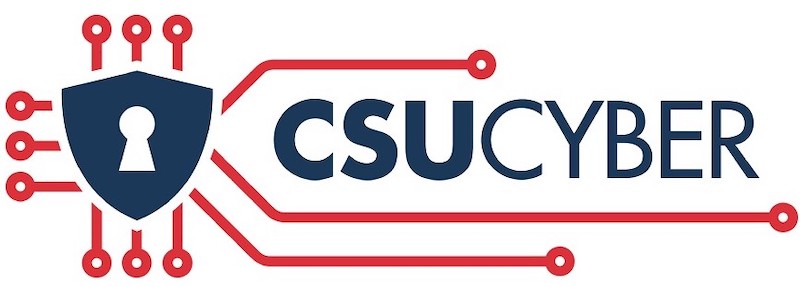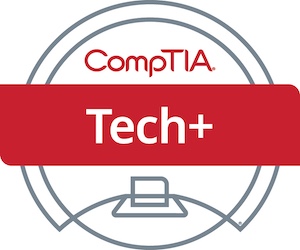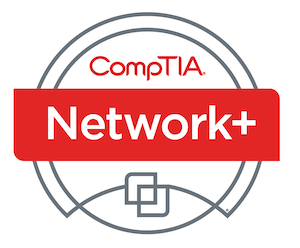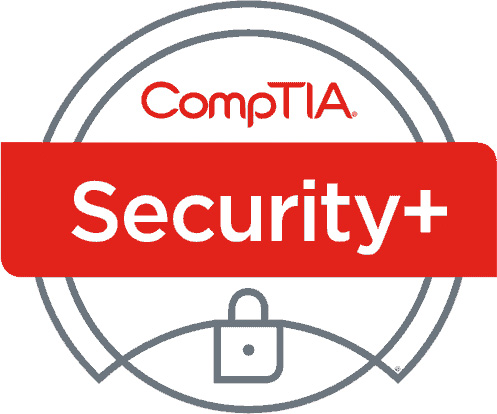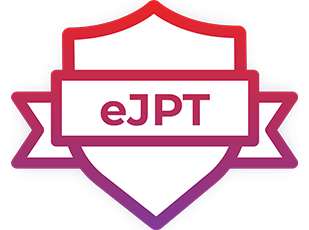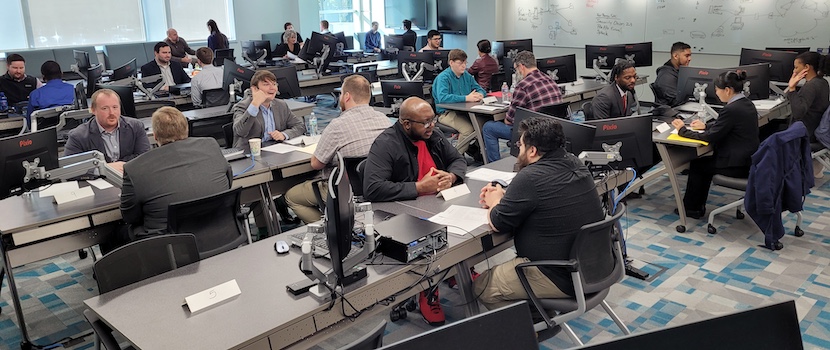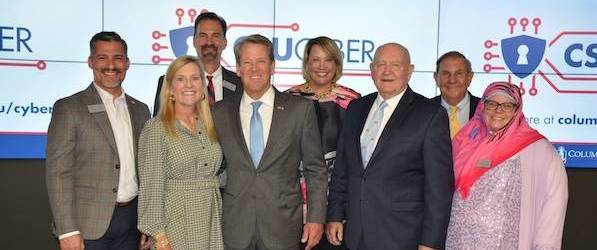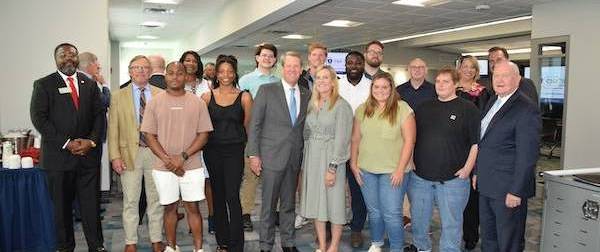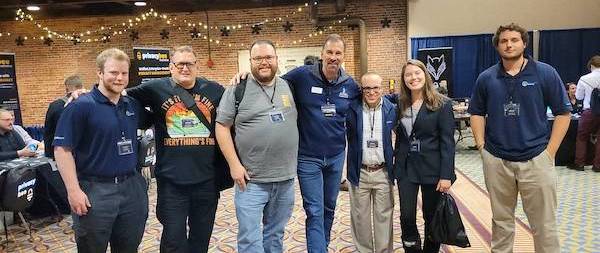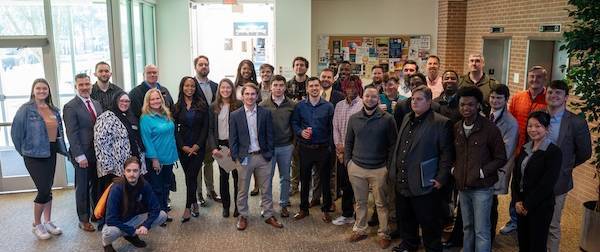What is the Cybersecurity Nexus Program?
The Cyber Security Nexus Program at Columbus State is designed to develop work-ready cybersecurity professionals in just 12 months. With a bootcamp-style curriculum, classes run from 9 a.m. to noon, Monday through Thursday, creating a collaborative, cohort-based environment for students to learn and grow together.
The Practitioner Certification's 30 credit hours are also stackable toward our Nexus (associate) or bachelor’s degree in cybersecurity at Columbus State, keeping graduates on track in their educational journey while, through the partnership of CyberSkills2Work, they earn a plethora of industry certifications.
Professional Development and Real-World Experience
Nexus students receive hands-on career preparation, learning to craft strong resumes, excel in interviews, establish a professional online presence, and grow their professional networks. Through mock interviews, speaker visits, and small group interactions with industry recruiters and executives, students build critical soft skills for career success.
Every student also participates in an internship—either at CSU's in-house Security Operations Center or with one of our many industry partners—gaining invaluable, practical experience.
Additionally, students have access to the CSU Cyber Range and CyberSecurity Competitions, where they work with industry-standard tools and tackle real-world scenarios in a collaborative setting. This hands-on training provides a unique, immersive learning experience that helps students translate their education into real-world skills.
Nexus Testimonials
Still have doubts check out some Nexus-Alumni and Industry Partners and see what they have to say.
Lauren Bush

Joining this program was hands down the best decision I have ever made. In just six short months, I earned industry certifications that propelled me to land a life-changing job position within a major corporation. I gained not only technical skills but also social skills, elevating my communication abilities within my role. This program has transformed my life and secured my future. I am deeply thankful for the Cybersecurity Nexus Program and the amazing instructors who not only care about us as individuals but also push us to be the best versions of ourselves that we can be.
Arianna Burden-Force
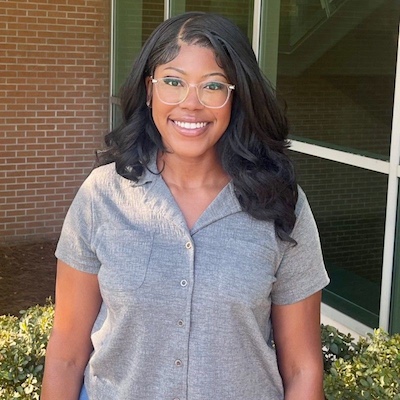
Each lesson learned, each skill acquired, has been a building block in constructing my knowledge in this ever-evolving field. But beyond the technical knowledge, what truly sets this program apart is the unwavering support and mentorship I've received, especially as a woman in cybersecurity. It's been a privilege to learn and grow alongside fellow aspiring cybersecurity professionals who are equally passionate about making their mark in this industry. I hope to inspire more women to pursue careers in cybersecurity and break barriers in a field where their talents are not just valued but essential. Here's to embracing challenges and continuing to make strides in the world of cybersecurity!
Todd Dupas Jr.
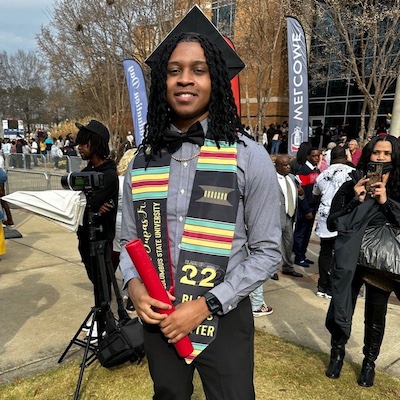
Joining the Columbus State University Cybersecurity Nexus Program was a pivotal decision for me, providing invaluable mentorship, career guidance, and a supportive peer network. Throughout the program, I earned four certifications while working full-time, which paved the way for my transition into the cybersecurity field. Thanks to Nexus, I moved from asset management to a cybersecurity analyst internship at Global Payments. I am grateful for Nexus's role in shaping my career and am excited to see what the future holds.
Kevin Gowen
Eli White
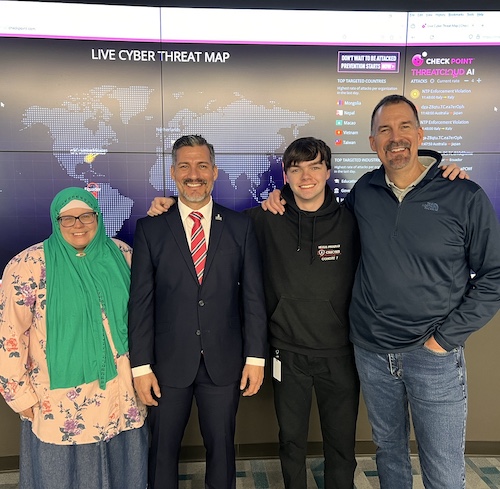
My time in the Cybersecurity Nexus Program was the most transformative year of my life. The camaraderie in my cohort and the genuinely helpful leadership helped me realize my potential as a student and professional. Every piece of information we learn in the program is well thought out and purposeful, from the industry-grade certifications to the time spent with professionals in the field. There are endless extracurricular opportunities provided. Words that can describe the program are genuine, function over form, approachable, forgiving, encouraging, and successful.
Contact Us
For more information, please contact:
Sean Glieberman
Director, TSYS Center for Cybersecurity,
CAE Point of Contact
glieberman_sean@columbusstate.edu
Elke Brumbaugh
Lecturer
brumbaugh_elke@columbusstate.edu
Armando Fernandez
Lecturer
fernandez_armando@columbusstate.edu
Christopher Lovelock
Lecturer
lovelock_christopher@columbusstate.edu
Donovan Wright
Student Assistant
wright_donovan@columbusstate.edu
McCarty McGraw
Student Assistant
mcgraw_mccarty@columbusstate.edu
Jude Pontes
Student Assistant
pontes_jude@columbusstate.edu
Juanita Escobar
Student Assistant
escobar_juanita@columbusstate.edu
